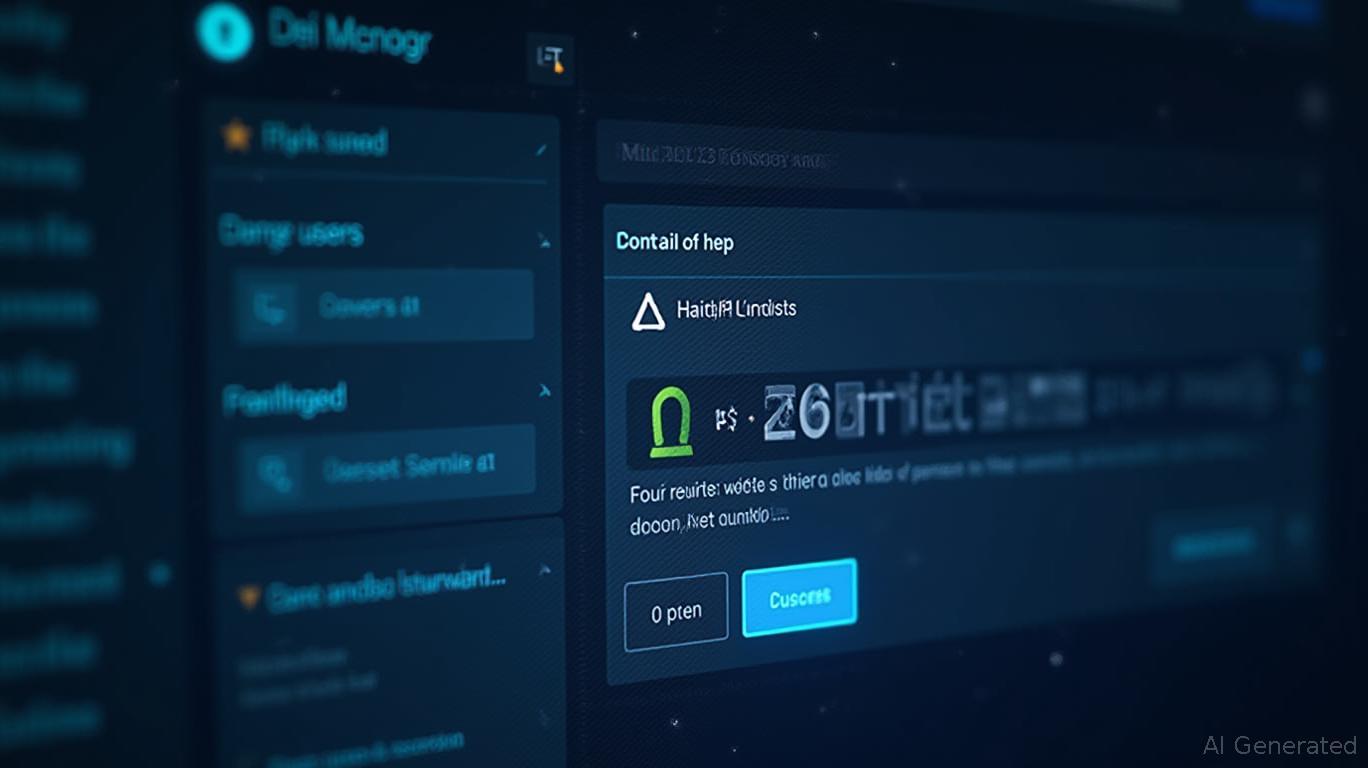DeFi’s ‘Permit’ Function Exploited in $6 Million Phishing and Money Laundering Incident
- A $6.28M phishing attack exploited DeFi Permit signature flaws, draining stETH/aEthWBTC tokens via malicious wallet pop-ups. - Attackers used Drainer Networks and multi-chain transfers to launder funds across Ethereum, Bitcoin, and TRON within hours. - The incident highlights DeFi's vulnerability to zero-gas-fee exploits and underscores urgent need for smart contract audits and user education. - Similar attacks increased 72% in August 2025, with phishing schemes leveraging EIP-7702 batch-signature vulner

On September 18, 2025, a phishing scheme led to the loss of $6.28 million worth of staked
The attacker took advantage of a flaw within the "Permit" signature feature, which is meant to make token transfers easier by letting users
The laundering process used sophisticated techniques to spread funds across multiple chains. Roughly 753 stETH and 123 ETH were bridged to Ethereum, while 71 ETH ended up on the NEAR protocol. One fee wallet from the Drainer Network sent 312.8 ETH to a concealed address, further complicating the money trail Phishing Heist Steals $6M in stETH & aEthWBTC, Laundered Fast [ 1 ]. All these movements happened rapidly, within a few hours, illustrating how efficiently modern laundering operations can hide the origins of stolen funds across different blockchains. This case reflects a larger pattern: Scam Sniffer documented $12.17 million in phishing losses in August 2025—a 72% jump from July—with three major accounts comprising nearly half that total, including one theft of $3.08 million Crypto whale loses $6M to sneaky phishing scheme targeting staked Ethereum [ 2 ].
Experts attribute the rise in phishing thefts to a wave of EIP-7702 batch-signature exploits and direct transfers to rogue contracts Crypto whale loses $6M to sneaky phishing scheme targeting staked Ethereum [ 2 ]. This incident should warn crypto holders to be wary of granting permissions to unknown sources and interacting with suspicious smart contracts. Recommended precautions include using hardware wallets, enabling multi-factor authentication, and monitoring wallet permissions for irregularities Phishing Heist Steals $6M in stETH & aEthWBTC, Laundered Fast [ 1 ]. For developers, it’s vital to carry out thorough smart contract reviews and adopt multiple security layers to reduce risks $6.2M Gone Overnight: New Phishing Attack Shakes Crypto … [ 3 ].
This attack also underscores a fundamental problem for DeFi: the absence of centralized authorities makes it virtually impossible to compensate victims after a theft. Unlike conventional banking, many DeFi projects can’t reverse fraudulent transactions or restore lost assets, exposing users to permanent losses $6.2M Gone Overnight: New Phishing Attack Shakes Crypto … [ 3 ]. The event follows a separate $2.59 million hack targeting the Nemo Protocol in September 2025, further illustrating the inherent dangers in decentralized systems $6.2M Gone Overnight: New Phishing Attack Shakes Crypto … [ 3 ]. As phishing tactics become more sophisticated, the crypto sector must find ways to innovate while strengthening security to restore user confidence and guard against widespread loss of trust.
Disclaimer: The content of this article solely reflects the author's opinion and does not represent the platform in any capacity. This article is not intended to serve as a reference for making investment decisions.
You may also like
Bitget TradFi: Trade gold, forex, and more assets in one account
CandyBomb x US: Trade to share 5,400,000 US
[Initial Listing] Bitget to list Almanak (ALMANAK). Grab a share of 4,200,000 ALMANAK
[Initial listing] Bitget to list Cysic (CYS) in the Innovation zone